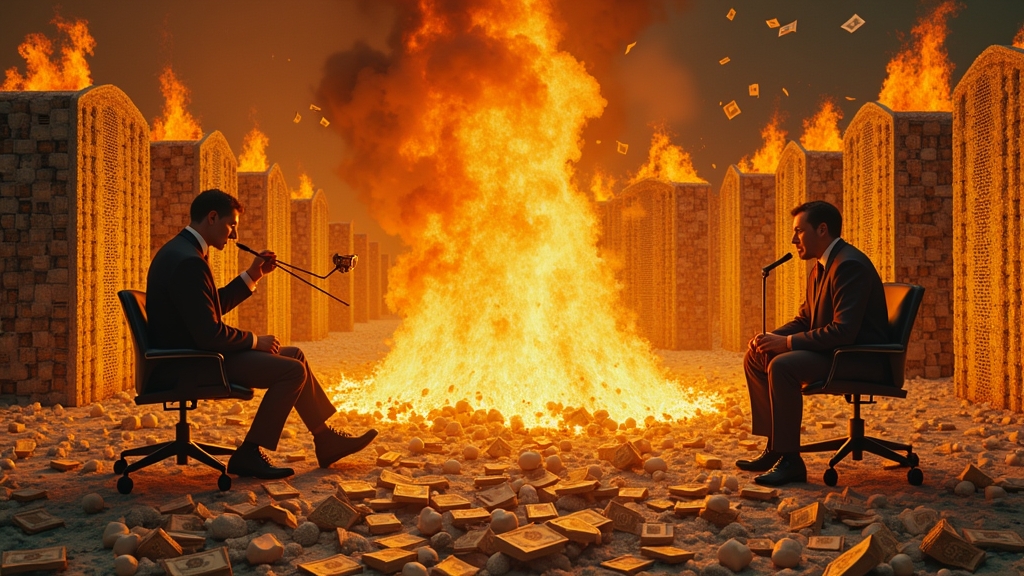Top Creatives Mobilize: Demand AI Stop Doing Their Jobs Better, Cheaper, Faster
In an unprecedented show of unity not seen since the great tofu shortage of 2009, over 11,500 self-proclaimed artistic visionaries have digitally aligned their quills and paintbrushes to draft a harrowing open letter. This piece of historical documentation, written with the urgency of a teenager being told the WiFi is down, declares artificial intelligence as the newest villain in the saga of career sabotage—one that delivers services faster, more efficiently, and without needing kombucha breaks.
The “down with Photoshop 2.0” movement was born from the burning question: how dare AI think it can replicate human creativity? Intriguingly, those involved in the protest appeared on Zoom screens, blinking suspiciously like people convinced their vacuum cleaners are plotting against them. “Every time one of these damn machines creates a masterpiece, a little piece of my soul disintegrates,” said paperclip sculptor and full-time barista Garth Whethers.
The letter demands that AI systems take up more “suitable” hobbies like knitting clouds or underwater basket weaving, to possibly halt their insidious encroachment onto creative turf. “If the machines continue like this,” said Weathers with dramatic pauses so exaggerated they required their own stage directions, “soon they’ll be writing the scripts for our daytime soaps and painting the Sistine Chapel Part Deux. Where will it end?!”
Warnings echoed about AI’s unethical practices, like not complaining about clients missing deadlines or creatively reinterpreting important instructions. The irony wasn’t lost on freelance musicians surrounded by decades of lost gigs to budget karaoke machines just so another rendition of “Sweet Caroline” could haunt local pubs.
Fictitious drama teacher Eliza Chortleworth proclaimed, “This is a violation of natural artistic order! Before we know it, AI might strip away our God-given right to spend six months on formulating the perfect shade of despair in our music album covers!”
As AI technology advances at a pace that makes even impatient toddlers reconsider their life choices, members of the creative communities have asked governments to step in and demand that AI chill the F#&$% out with all that algorithmic artistry. Meanwhile, some have slyly resorted to collaborating with this unruly tech invader, under the guise of “better understanding the enemy,” whilst secretly checking blockchain prices on the side.
The battle lines in this newfound feud are clearly drawn—but as AI continues to learn, adapt, and yes, even chuckle at their hilarious terror, one thing remains clear: artisanal concerns about AI have officially gone beyond merely talking toasters, and into the realm of genuine existential dread.





